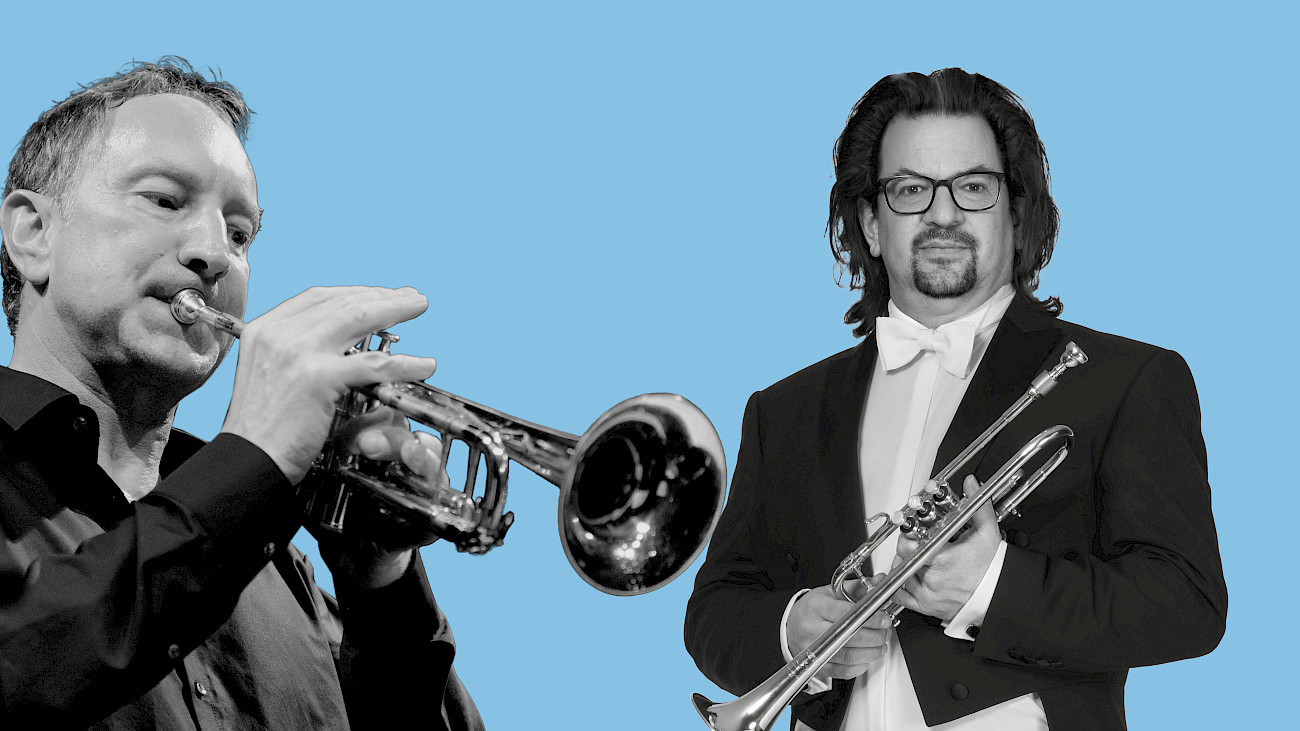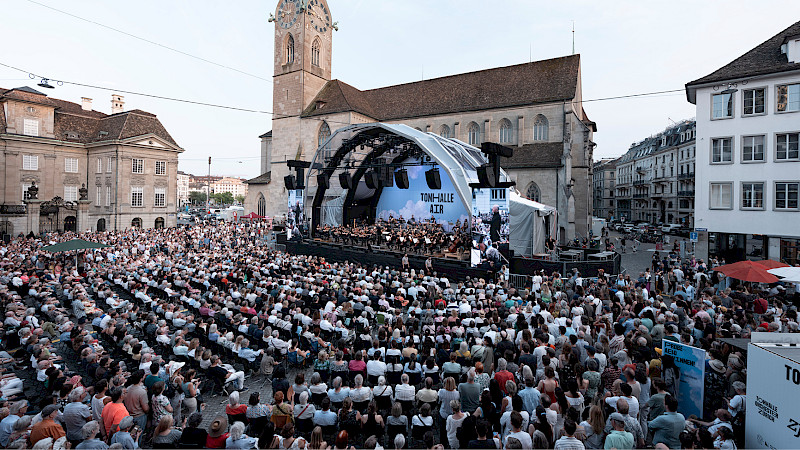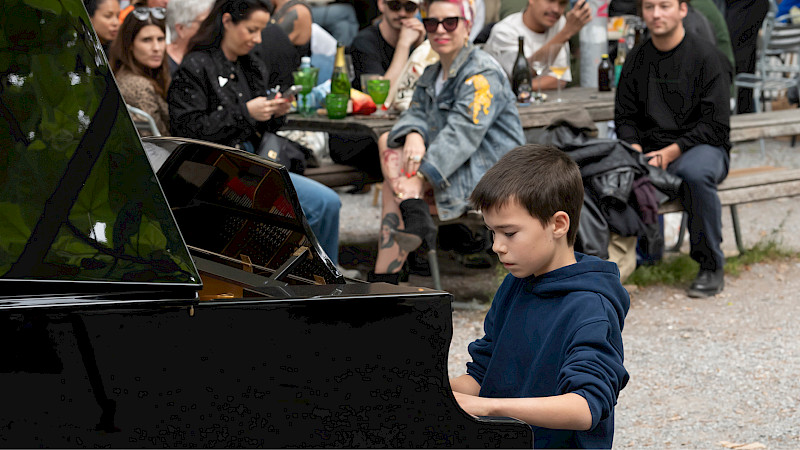
"I hope it will be an initial spark!"
Daniel Schenker and Heinz Saurer are both trumpet players - one plays in the Zurich Jazz Orchestra, the other in the Tonhalle Orchestra Zurich. They met up for a chat before their joint performance.
Your orchestras will be performing together for the first time at tonhalleAIR. What is it like for you personally? Have you already played together?
Daniel Schenker: Not yet. But I go to the Tonhalle very often, and I've also heard Heinz in many other concerts.
Heinz Saurer: I was recently back at Moods for a ZJO record launch. We definitely know each other well from listening to each other.
How did this project come about?
HS: I had already suggested such a collaboration to our management when we were still at the Tonhalle Maag. Moods was right next door, so it would have been a perfect fit. But it didn't work out back then. So I'm all the more pleased that it's now working out after all! And I'm not the only one. There was a lot of interest in the project among us in the orchestra.
DS: We're also really looking forward to performing together. I'm sure it will be a good experience for both sides. Incidentally, our conductor Ed Partyka has already done similar projects with big band and classical orchestra in Finland. That will make things a lot easier.
What are the biggest differences between the two orchestras?
HS: The outfit! No, seriously: the biggest difference is definitely the improvisation. We play exclusively from sheet music. In addition to the orchestra, I have always tried to learn how to improvise, partly with the help of colleagues from the ZJO. But that's really high school.
DS: Apart from that, the difference in the way we work is not that great. We also have to practise, find a common groove together with a conductor and deliver it in concert - just in a different musical language. Swing phrasing, in particular, takes a lot of experience to get right.
HS: While we're on the subject of similarities: The standard is high in both ensembles.
DS: There are also musical parallels. I've recently been studying the "jeu inégal" in the French Baroque period a lot, in other words the "unequal" shaping of regular note values, which we are also familiar with in other ways. Mozart once improvised his cadenzas. And there are chords in Rachmaninov's piano concertos that only emerged in jazz 50 years later.
You are both trumpet players. How did you get to where you are now?
HS: I originally came from the brass band and big band scene. During my studies, that faded a little in favour of classical music, but I still only listen to CDs like this in the car. Part of my heart definitely beats for jazz.
DS: For me, on the other hand, it started with classical music. My mum was a fan of Maurice André and it was clear to her that I should play the trumpet as the eldest son. But after that, brass band music was also important to me, we had a Dixieland band, so it was natural for me to play freely.
HS: Today, by the way, training is much more open and cross-genre than it used to be. The divide between the styles has disappeared.
DS: Forty years ago, it was still the case that classical musicians forbade their students to play jazz because it would "ruin their approach". Today we meet on the same level, literally: I teach at the ZHdK on the same floor as the classical musicians.
How do you play at tonhalleAIR? Exclusively from sheet music or also improvised?
DS: There are improvised passages in the sheet music. Maybe Heinz will take over one?
HS: I get nervous when I hear that.
DS: We'll see. What's certain is that we'll be sitting together. It really will be together, not next to each other.
HS: And I hope it's an initial spark! You could do so much, in very different settings, even in smaller formations. It would be great if the collaboration could continue after tonhalleAIR.





